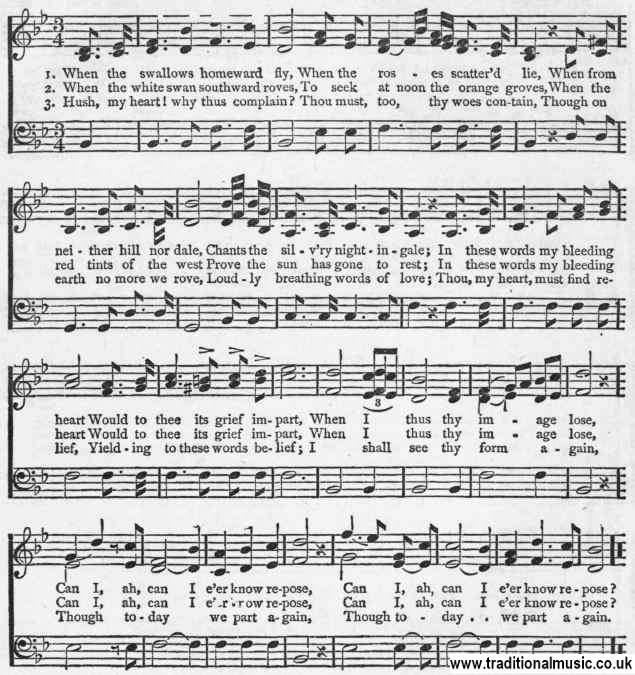Favorite Songs and Hymns For School and Home, page: 0011
450 Of The World's Best Songs And Hymns, With Lyrics & Sheet music for voice & piano.
| Share page | Visit Us On FB |
|
FAVORITE SONGS FOR SCHOOL AND HOME. |
IX |
|||
|
Sound.�Sound is occasioned by the vibration of some sonorous body which is communicated to the air. This motion of the air is transferred to the tym�panum of the ear, and thence, by means of most ex�quisite mechanical contrivances, through the auditory nerve to the brain. A wave of sound goes out from the sonorous centre in a spherical form, consisting of alternate condensations and rarefactions, something in the same way as a wave of water goes out from the the centre of disturbance in a circular form, consist�ing of alternate ridges and depressions. The differ- |
ence between a sound and a musical note is not a dif�ference per se: any sound repeated with equal force, at very minute intervals, will produce a musical note, the pitch of the note produced depending solely upon the frequency of the repetition; the more frequent the vibrations become the higher will be the pitch. A single sonorous impulse, or such successive impul�ses as are irregular in their character, produce noise. Perfectly-timed impulses produce a musical note. In�tensity is due to the amount of disturbance in the medium, to the amplitude of the excursion which |
|||
|
WHEN THE SWALLOWS HOMEWARD FLY.
- |
Franz Abt. |
|||
 |
||||
|
every little molecule makes back and forth in deliv�ering up its motion and coming to rest. Every note corresponds to a fixed rate of vibration, and harmony is due to the existence of a simple ratio between the rates of vibration of the two notes struck simultane�ously. The ratio of the octave is *, of the fifth is \, of the fourth *, of the third *, and of the minor third J; that is to say, the number of vibrations of the high�er note in the chord corresponds with the numerator �f the fraction, and of the lower note with its denom- |
inator. When the ratio becomes more complex than " the combination is unpleasant to the human ear, as well as to some animals, and is called discordant.
Under the influence of music we are all deluded in some way. We imagine that the performers must dwell in the regions to which they lift their hearers. We are reluctant to admit that a man may blow the most soul-animating strains from his trumpet and yet be a coward; or melt an audience to tears with hi* violin, and yet be a heartless profligate.�Hilliard. |
|||